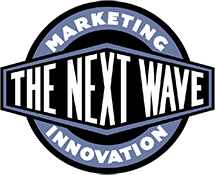I just read an article in Mediaweek- “Next Wave: Network DVRs”, March 28 2005, that proves people are missing the point of the Digital Video Recorders (TiVo) and VOD (Video on Demand).
Much of this harks back to the misunderstanding many people have about what the difference is between an ISP, AOL, Internet access, Internet hosting and what being “online” means. Cable companies are not content providers, just the deliverymen. Networks aren’t creating programming- they are just a vehicle for delivery of an advertising message. And a DVR is nothing but a library of programming personalized for your viewing pleasure.
Where that library of programming resides will change dramatically in the next 5 years. The entire “Network” model, be it broadcast or cable, should already be a relic. Since viewers don’t watch programming 24 hours a day, why should anyone be trying to fill 24 hours a day? The successful model of the future is being able to get at least 30 minutes a day, of the largest very definable audience on a guaranteed basis.
For example: How valuable would 30 seconds be if I could deliver the eyes and ears of every person in the country who is going to buy lunch at a fast food restaurant today if I’m McDonalds and I want to promote a new burger, the Big Ronald, for 59 cents today only? The question wouldn’t be how much those :30 seconds are worth- but how would they deal with the mad frenzy at every store in the country?
Or more realistically, if I could sell :30 seconds every day to reach every single video gamer in the country?
The secret is not in how the channels of programming distribution work, or who owns the shows, or what time the viewer watches- it’s the delivery of guaranteed highly targeted eyeballs, nothing more, nothing less.
And the cable companies are just unnecessary middlemen who don’t know it yet, as are the networks. The “network DVR” will appear, but it will be owned by the content owner, who will get paid based on the delivery of a message to the most eyeballs necessary.
The winner in all this will be the company that delivers the technology to bill the advertiser for each eyeball, and that figures out who the ideal viewers of the message are.
For example: I love 2 HBO shows- Deadwood and The Sopranos. Everything else on HBO I can get from Netflix, albeit in not quite HD quality (yet). To get those 2 shows, I have to subscribe to basic cable, and then to HBO as a premium. At $2 each a show, I spend $8 a month, and am well ahead of my $70 VOOM bill. Now if there were more TV viewers in my household, this starts to erode the numbers. But, if I’m willing to be profiled for marketing preferences, and willing to watch 6 highly targeted commercials (no feminine hygiene products or ED drugs) and get the show for $1 each, you bet I’m going to watch the spots.
This is the future of television and advertising, with advertising actually hitting people who are 100% probable customers instead of John Wanamaker’s famous “I know half of my advertising budget is wasted, I just don’t know which half” paradigm.
Taking the stress out of delivering around the clock programming to be a “Network” and the absurdity of Nielsen measurements of the “Mass market” appeal of programming to measure advertising effectiveness, will allow a new creativity to programming and a much more effective and elegant advertising solution.
Programmers will make programming that finds desired eyeballs, media buying companies will deliver the correct mix of eyeballs for the message, and advertising agencies will get back to how to sell on a one-to-one basis, with messages tailored for each type of buyer. Viewers will get the programming they want, when they want it, for a reasonable price, and will grow to love advertising because it is all relevant, helpful and it saves them money, and all will be right with the world.
Be warned, the path to this solution will be painful for many of the major players, and the resistance will be great and the casualties many, so it may not happen the way that any of us can predict, but it will happen.
Two companies that merit watching of this are Apple for their iTunes music store, which could become the next video content store, (see article:”could a multimedia iPod allow Apple to dominater movie and TV online sales“)Google with their adsense driven insertion systems and Amazon who understands the power of suggestive selling based on customer data. There are doubtlessly countless others who will benefit from this change, but there are twice as many who will fight it and end up off the playing field all together.
What do you think?

Trackbacks/Pingbacks